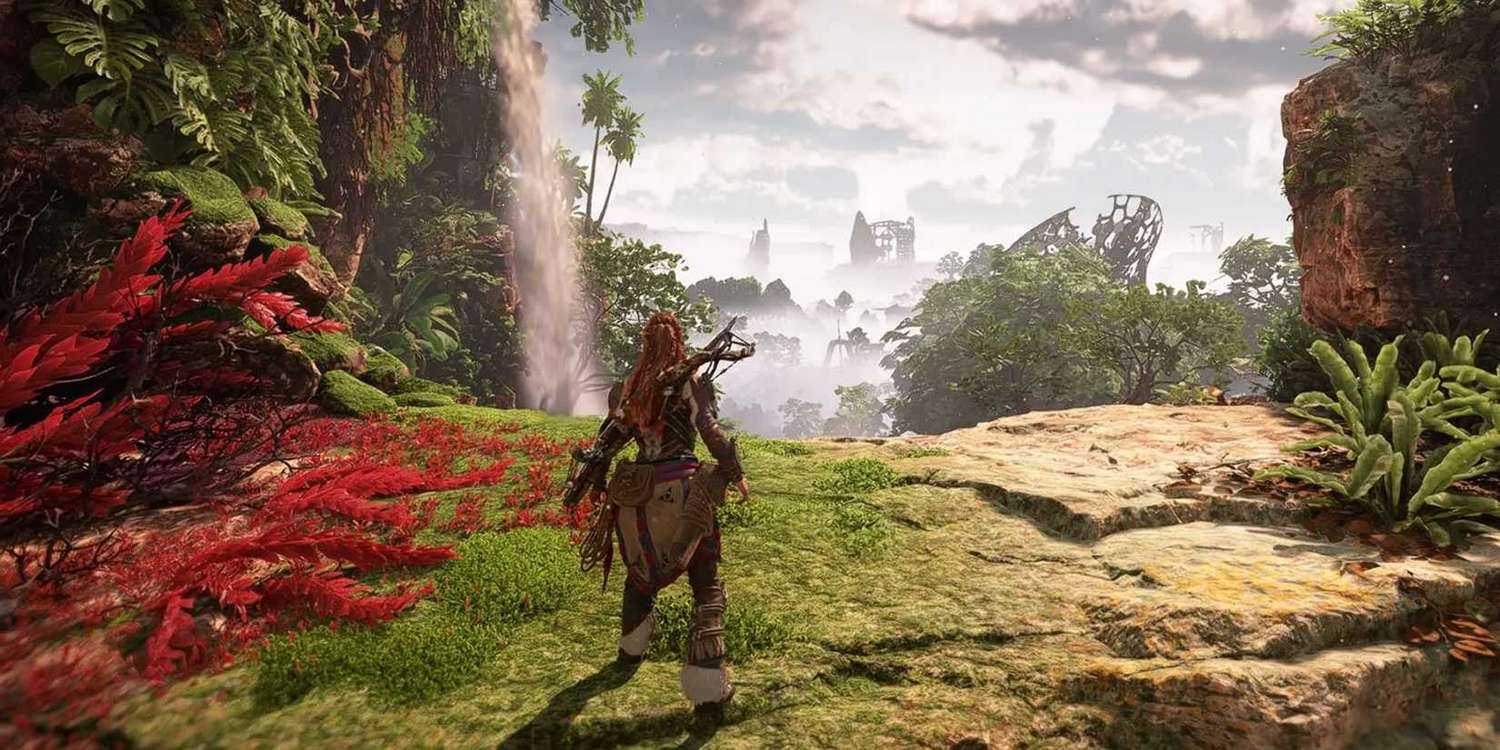Sony Escalates Legal Battle: Files Injunction Against Tencent’s ‘Light of Motiram’—The Alleged Horizon Clone
Popular Now
 League of Legends
League of Legends
 Grand Theft Auto V
Grand Theft Auto V
 Garena Free Fire: Kalahari
Garena Free Fire: Kalahari
 Warframe
Warframe
 BeamNG.drive
BeamNG.drive
 Roblox
Roblox
 EA SPORT FC 25
EA SPORT FC 25
 The Legend of Zelda
The Legend of Zelda
 Call of Duty
Call of Duty
 CarX Street
CarX Street Sony Demands Immediate Halt on ‘Light of Motiram’ Promotion, Citing Irreparable Brand Damage
The high-stakes legal confrontation between gaming titans Sony Interactive Entertainment (SIE) and Tencent Holdings has reached a critical juncture. In a significant escalation of its copyright infringement lawsuit, Sony has formally requested a preliminary injunction against Tencent’s highly-anticipated open-world survival title, Light of Motiram. Filed with the U.S. District Court for the Northern District of California, the motion seeks to bar Tencent from further developing, promoting, or releasing the game, which Sony has repeatedly labeled a “slavish clone” of its multi-million-selling Horizon Zero Dawn and Horizon Forbidden West franchises.
This move is a direct rebuttal to Tencent’s earlier motion to dismiss the lawsuit, where the Chinese conglomerate argued that Light of Motiram merely utilizes “time-honored tropes” common across the industry, such as post-apocalyptic settings and robotic wildlife. Sony’s legal team, however, has dismissed this defense as “nonsense,” arguing that the alleged copying is so “blatant” that it has already caused significant consumer confusion and “irreparable harm” to the Horizon IP.
The Core of the Copyright Clash: Character, Aesthetics, and Music
The latest court filing lays bare Sony’s concerns, focusing on several key intellectual property elements it claims have been unlawfully appropriated. While the initial lawsuit filed in July 2025 highlighted numerous similarities—from the world design featuring mechanical creatures to an overall post-apocalyptic tribal aesthetic—the injunction zeroes in on the protagonist and specific musical compositions.
- The Aloy Lookalike: Sony is seeking to bar the use of a “fierce tribal warrior huntress characterized by fiery red hair” that it argues is a direct and confusingly similar copy of Horizon’s protagonist, Aloy. The character is not just a lead hero in a critically-acclaimed game, but a symbol of the PlayStation brand, and Sony asserts that Tencent is deliberately attempting to trade off her established goodwill and reputation.
- Visuals and Marketing: The injunction aims to prevent the use of other specific visual and storyline elements allegedly derived from the Horizon series. Sony pointed to promotional materials, some of which Tencent quietly scrubbed from the Steam and Epic Store pages for Light of Motiram shortly after the initial lawsuit was filed, as proof of their infringement.
- Musical Allegations: Furthermore, the filing targets a melody used in a trailer for Light of Motiram, which Sony claims is unduly similar to two distinct compositions from the Horizon Zero Dawn Original Soundtrack, further muddying the waters for consumers.
Sony’s position is that the pervasive nature of the alleged copying jeopardizes the continued success of the Horizon franchise, including the ongoing development of its planned live-action film adaptation, which a sworn declaration from a PlayStation Productions executive confirmed is set to begin filming in 2026 for a 2027 release (Source: The Game Post, Oct 2025). The company contends that this planned expansion highlights the immediate and ongoing damage from Tencent’s alleged infringement.
Tencent’s Defense: A ‘Shell Game’ and ‘Genre Conventions’
In its defense, Tencent has taken a dual approach. Firstly, it has sought to characterize Sony’s action as an “improper attempt to fence off a well-trodden corner of popular culture,” citing other games like The Legend of Zelda: Breath of the Wild and Enslaved: Odyssey to the West that contain similar thematic or visual elements (Source: IGN, Sept 2025). Tencent argues that Horizon itself was not entirely original in its concept. Secondly, the Chinese tech giant has attempted to deflect legal liability by suggesting Sony is suing the wrong entities, playing what Sony’s legal filings have dubbed a “shell game” with its complex corporate structure and subsidiaries (Source: GamesIndustry.biz, Oct 2025).
The delay of Light of Motiram‘s scheduled release date to late 2027, from an initial late 2025 window, was cited by Tencent as evidence that Sony could not demonstrate the “immediate threatened injury” required for a preliminary injunction. However, Sony has firmly rejected this argument, stating that the extensive pre-release promotion and ongoing consumer perception of Light of Motiram as a Horizon knock-off means the damage has already been done and continues.
Implications for the Gaming Industry and IP Law
This lawsuit is being closely watched across the global video game industry. Its outcome will have major implications for how intellectual property—particularly non-literal elements like aesthetics, character archetypes, and world design—is protected in the era of high-fidelity, open-world games. A granting of the preliminary injunction would represent a significant win for Sony and establish a strong precedent regarding the protection of a game’s “look and feel.”
The court, under Judge Jacqueline Scott Corley, is expected to hold a hearing on the preliminary injunction motion soon, possibly in November 2025. If granted, the injunction would effectively force Tencent to fundamentally redesign significant portions of Light of Motiram, including its protagonist and promotional materials, before the lawsuit even reaches a full trial. This would represent a major financial blow and reputational challenge for Tencent’s development subsidiary, Polaris Quest.
The case underscores the increasing importance of intellectual property rights in the highly competitive and lucrative AAA gaming market. As Sony seeks to leverage its valuable Horizon franchise for cross-media expansion, the protection of its core assets from alleged clones is paramount to maintaining both its market dominance and the brand’s creative integrity.











